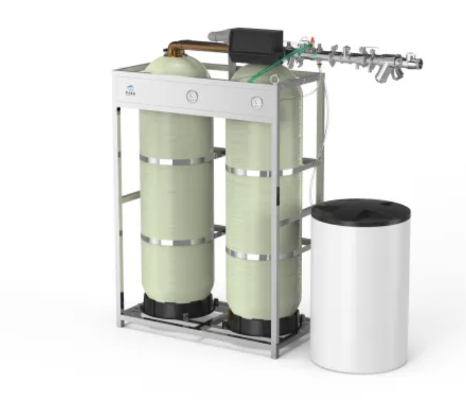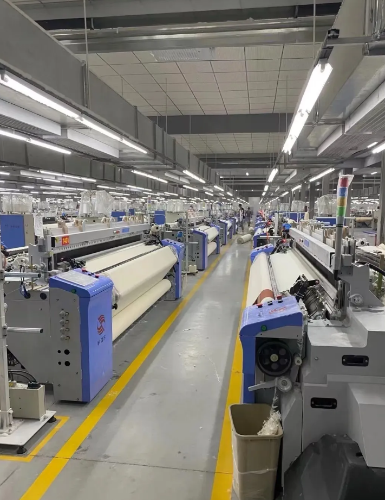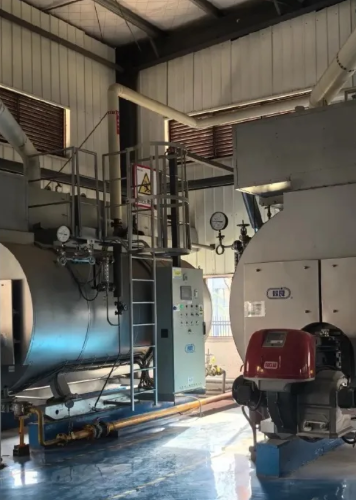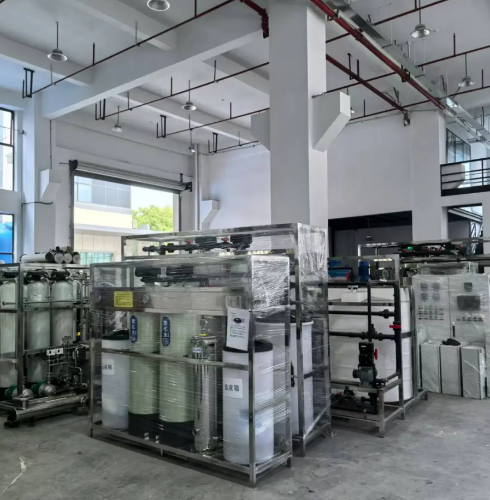Cat:UF Membrane
In the field of industrial water purification, strict quality standards are required. In response to this challenge, a membrane filter with a PVDF str...
See DetailsIndustrial Water Softener: The Invisible Guardian of Production Behind Hardcore Equipment

In a factory's production floor, boilers hum continuously, pipes transport fluids, and equipment churns at high speeds... Behind these seemingly smooth processes lies a key player: the industrial water softener. While not as eye-catching as large production lines, it quietly safeguards equipment lifespan, production efficiency, and product quality, making it an "invisible necessity" in industrial production.
Why is industrial production inseparable from soft water?

Among industrial water, hard water (containing high concentrations of calcium and magnesium ions) is the "invisible killer" of many equipment.
In the textile and printing and dyeing industries, hard water affects the adhesion of dyes, resulting in uneven color and rough feel of fabrics, and an increase in defective product rates.
In boilers, heat exchangers and other equipment, hard water will form scale after heating, resulting in uneven heating. This will not only increase energy consumption (thermal efficiency can drop by 10%-30%), but may also cause pipe blockage and even explosion risks.
In the production of electronics and precision instruments, minerals in water can adhere to component surfaces, affecting product accuracy and service life.
In chemical reactions, calcium and magnesium ions can react with raw materials, disrupting process stability and affecting the purity of the final product.
Industrial water softeners: More than just softening, they also stabilize production processes.
The core function of an industrial water softener is to efficiently remove calcium, magnesium, and other impurities from water through technologies like ion exchange and reverse osmosis, providing soft water that meets process standards. Its role goes far beyond simply preventing scale buildup.
Equipment safety: It prevents scale buildup, reduces corrosion and blockage in boilers and pipelines, extends equipment life, and reduces the risk of maintenance downtime.
Operating cost reduction: It improves equipment thermal efficiency, reduces energy consumption (coal, electricity, and gas) by 10%-20%, and reduces the use of consumables like descaling agents.
Product quality assurance: In industries like textiles, food, and electronics, softened water reduces the impact of impurities on production processes, ensuring more consistent product quality.
Industry compliance: Many industrial sectors (such as pharmaceuticals and food) have strict water hardness regulations, and water softeners are essential for meeting these standards.
The difference between water softeners
Industrial water softener: how is it different from household models?

The complexity of industrial applications dictates the core strengths of industrial water softeners:
Higher processing capacity: A single unit can process several to hundreds of tons of water per hour, meeting the large-scale water demands of production lines, boilers, and other applications.
Higher tolerance: The unit can withstand complex water conditions, such as high turbidity and salinity, found in industrial water, providing enhanced stability.
High intelligence: The unit is equipped with a fully automated control system that monitors water hardness and flow rate in real time and automatically performs regeneration (resin reduction), eliminating the need for frequent manual operation.
Customized design: Customizable designs, such as single-valve, single-tank and dual-valve, dual-tank options, can be tailored to industry characteristics (e.g., high-temperature, high-pressure environments) and water quality, ensuring continuous water supply.
Which industries must arrange industrial water softeners?

Energy and Power: Boiler water in thermal power plants and chemical plants requires strict control of water hardness to prevent scaling and bursting.
Manufacturing: In textile, printing and dyeing, papermaking, and electronic component production, soft water directly impacts product quality.
Food and Pharmaceutical: In the beverage, dairy, and pharmaceutical industries, soft water is essential for ensuring product purity and hygienic standards.
Metallurgical Machinery: Soft water used in cooling and hydraulic systems reduces equipment wear and improves operational efficiency.
In industrial production, water quality is directly related to production safety, efficiency, and cost. A suitable industrial water softener, while seemingly insignificant auxiliary equipment, can save companies significant hidden costs by providing a stable supply of soft water—reducing equipment maintenance, lowering energy consumption, and improving product quality.
When selecting an industrial water softener, consider local water quality reports, production water usage, and industry standards, prioritizing brands with customization capabilities and after-sales service guarantees. After all, in today's world of striving for efficient production, stability is the ultimate productivity advantage.
IndIndustrial water softener: how is it different from household models? ustrial water softener: how is it different from household models? Industrial water softener: how is it different from household models?